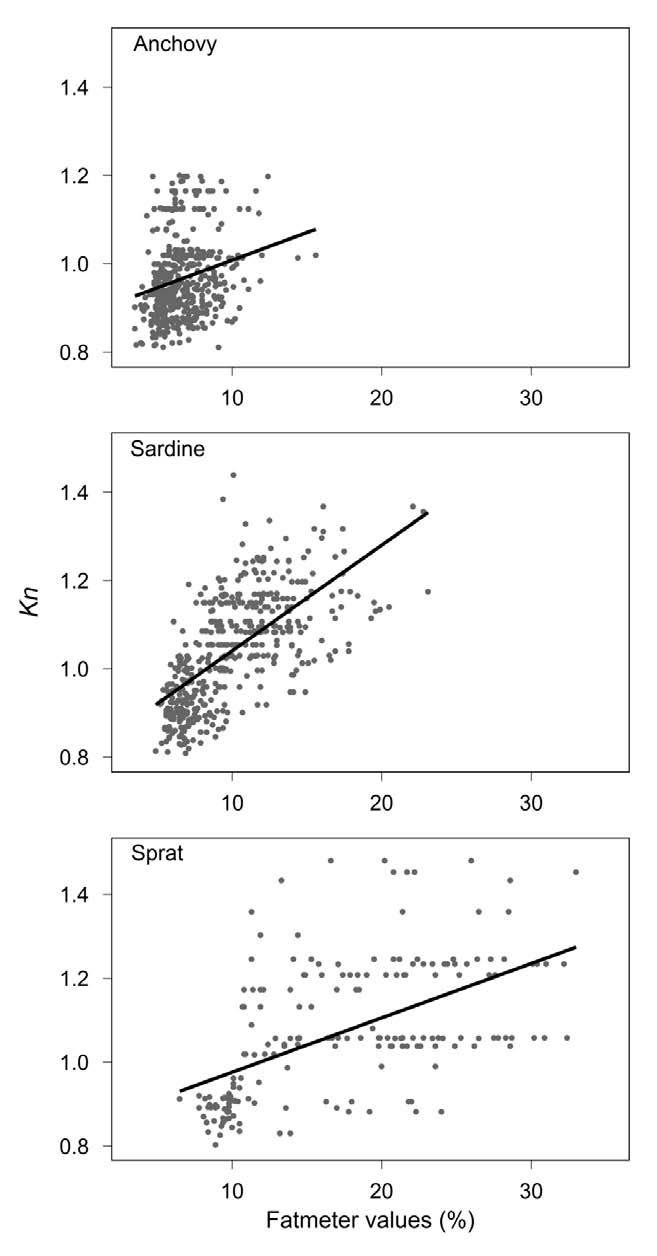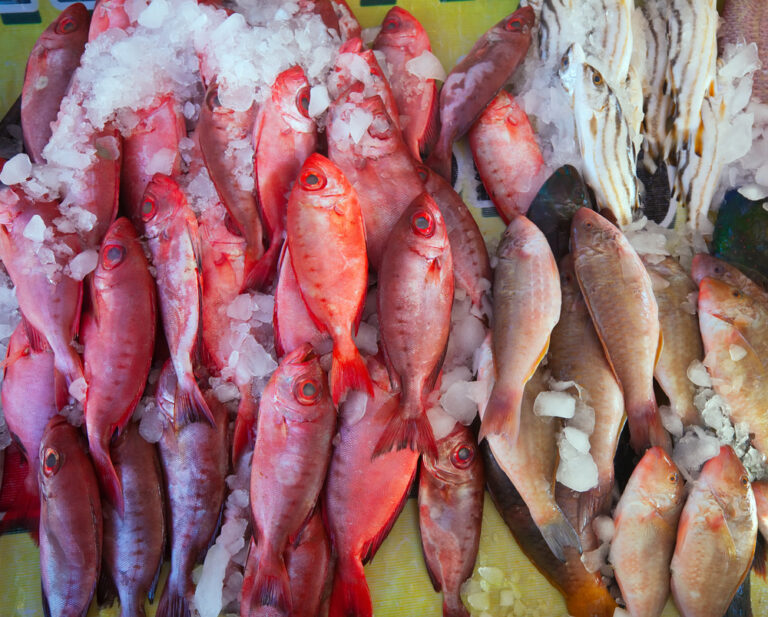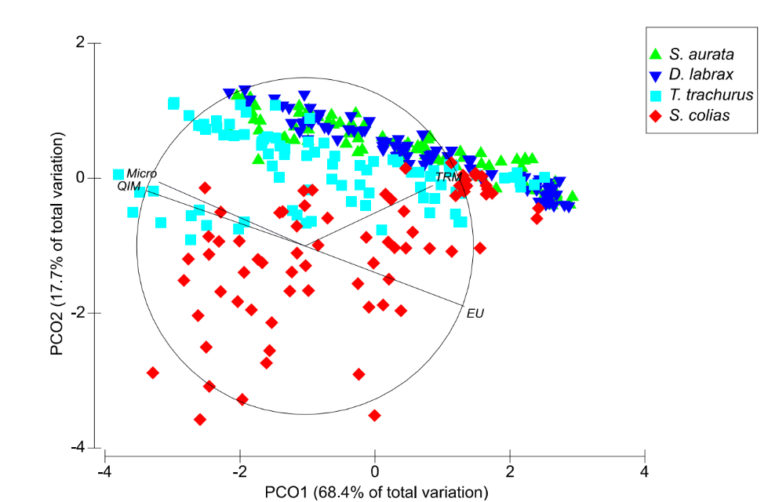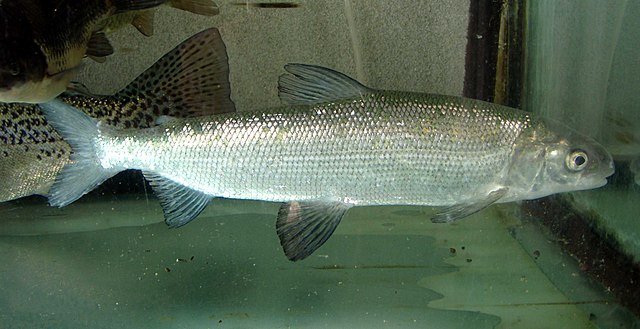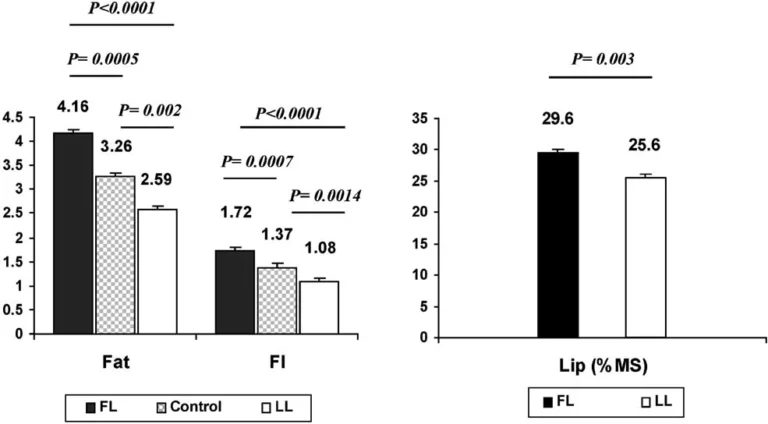Measure Fat Content of Small Pelagic Fish with the Fish Fat Meter
| Title | Measurement and analysis of small pelagic fish condition: A suitable method for rapid evaluation in the field |
| Written by | Brosset Pablo, Fromentin Jean-Marc, Ménard Frederic, Pernet Fabrice, Bourdeix Jean-Herve, Bigot Jean-Louis, Van Beveren Elisabeth, Pérez Roda Maria A., Choy Sandrine, Saraux Claire |
| From | Université Montpellier, France |
| Published | October 14, 2014 |
| Fish Species | European anchovy Engraulis encrasicolus European pilchard Sardina pilchardus European sprat Sprattus sprattus |
| Key Words | Anchovy, Fatmeter, Lipids, Mediterranean Sea, Sardine, Sprat |
What the research is about
The accuracy of two indirect methods, the morphometric relative condition index Kn and the bioenergetics index determined with the Fish Fat Meter was investigated by comparing with a direct measure of relative lipid content carried out with a thin layer chromatography flame ionization detector.
This article provides insights into the use of the Fish Fat Meter for assessing the condition of small pelagic fish. This article is highly relevant to industry professionals, researchers, and enthusiasts in the field of fisheries and marine biology who are seeking efficient and accurate methods to evaluate the lipid content and overall condition of small pelagic fish.
The Fish Fat Meter, an innovative tool discussed in the article, offers a promising solution for quickly and accurately tracking the lipid content of small pelagic fish. Its relevance lies in the need for a non-invasive, portable, and easy-to-use method that can provide reliable measurements in the field. This article sheds light on the potential applications and benefits of the Fish Fat Meter, thereby contributing to the advancement of technology and research in the field of fish condition assessment.
The Fish Fat Meter addresses several challenges encountered in the evaluation of small pelagic fish condition. Traditional methods, such as biochemical measurements of fat content, are often impractical for routine analysis due to their time-consuming nature and the need for low-temperature storage, which is not always feasible on fishing boats. Additionally, the precision of morphometric measurements to the nearest gram and millimeter was found to be insufficient for certain species.
By utilizing a microstrip sensor based on a permittivity calculation, the Fish Fat Meter estimates the relative fat content (% lipids) of an individual fish. This innovative technology allows for rapid, non-invasive measurements, overcoming the limitations of conventional approaches. Moreover, the Fish Fat Meter has been calibrated and validated to accurately estimate both muscle and whole-fish relative lipid content, reinforcing its effectiveness in assessing small pelagic fish condition.
Based on the content of the article, the Fish Fat Meter offers several benefits, including:
- Accuracy: The Fish Fat Meter has shown a high correlation with biochemical measurements and direct lipid estimations, indicating its ability to accurately reflect relative lipid content in small pelagic fish.
- Efficiency: With a measurement time of just one minute per fish, the Fish Fat Meter provides a quick and efficient method for assessing fish condition in the field.
- Portability: The Fish Fat Meter is a portable device, making it suitable for use in various field settings, including fishing boats and research vessels.
- Non-invasive: The Fish Fat Meter offers a non-invasive approach to evaluating fish condition, minimizing stress and potential harm to the fish during measurements.
- Easy to use: The Fish Fat Meter’s user-friendly interface and straightforward measurement process make it accessible to a wide range of users, including fisheries personnel and researchers.
The Fish Fat Meter can find utility in various scenarios involving the evaluation of small pelagic fish condition. Some ideal use cases include:
- Stock Assessment: The Fish Fat Meter can aid in the estimation of population dynamics and stock health by providing rapid and reliable data on the lipid content of small pelagic fish.
- Fisheries Management: By assessing fish condition in the field, the Fish Fat Meter can contribute to informed decision-making regarding fishing quotas, conservation measures, and sustainable management of fishery resources.
- Research Studies: The Fish Fat Meter offers a convenient tool for researchers studying the impact of environmental factors, feeding habits, and reproductive cycles on the lipid content and overall condition of small pelagic fish.
- Quality Control in Fish Processing: The Fish Fat Meter can be utilized in fish processing facilities to assess the lipid content and quality of small pelagic fish, ensuring compliance with industry standards and consumer requirements.
The Fish Fat Meter played a vital role in the conclusion of the article by providing a reliable, efficient, and non-invasive method for evaluating the condition of small pelagic fish. The study validates the performance of the Fish Fat Meter in accurately estimating relative lipid content, showcasing its potential as a valuable tool in the field of fish condition assessment. The findings highlight the importance of implementing innovative technologies, such as the Fish Fat Meter, to improve the efficiency and effectiveness of fisheries management and research endeavors.
Research conclusion
Estimations from the Fish Fat Meter correlated quite well with the relative lipid contents of all species, regardless of the reproductive period. The Kn method correlated more poorly with relative lipid content especially during reproductive period, pointing out the difficulty for such an index to precisely reflect changes in fat allocation.
The high repeatability of the Fish Fat Meter was brought to light so that only one measurement on each fish side may be necessary to evaluate the relative lipid content of a small pelagic fish. Finally, the Fish Fat Meter measurements were not affected by freezing storage up to one month for anchovy and sardines, making it possible to use frozen samples of both commercial and scientific survey.
Based on the content of the article, the Fish Fat Meter device offers valuable benefits and positively impacts the assessment of small pelagic fish condition.
The key benefits of using the Fish Fat Meter can be summarized as follows:
- Accuracy: The Fish Fat Meter demonstrates a strong correlation with biochemical measurements and direct lipid estimations, providing reliable and precise evaluation of the relative lipid content in small pelagic fish. This accuracy contributes to more informed decision-making and a deeper understanding of fish condition.
- Efficiency: The Fish Fat Meter enables rapid measurements, requiring just one minute per fish. This efficiency is crucial for field assessments, allowing for quick evaluations without compromising accuracy.
- Portability: The Fish Fat Meter’s portable design makes it ideal for use in various field settings, including fishing boats and research vessels. It can be conveniently carried and used in remote locations, facilitating on-site analysis.
- Non-invasiveness: The Fish Fat Meter offers a non-invasive approach to evaluating fish condition. This aspect minimizes stress and potential harm to the fish during measurements, ensuring ethical and humane assessment practices.
- User-friendly: The Fish Fat Meter’s user-friendly interface and ease of use make it accessible to a wide range of users, including fisheries personnel and researchers. It does not require extensive training, enabling efficient adoption and utilization.
In the article, the Fish Fat Meter was used to estimate the relative fat content (% lipids) of small pelagic fish. Its microstrip sensor, based on a permittivity calculation, provided two main advantages. Firstly, it enabled rapid, non-invasive measurements without the need for time-consuming biochemical analyses. Additionally, the Fish Fat Meter yielded accurate results, as validated by its high correlation with both biochemical and direct lipid estimations.
By using the Fish Fat Meter, the article’s researchers were able to overcome the challenges associated with traditional methods for assessing small pelagic fish condition. The Fish Fat Meter’s non-invasive and efficient nature allowed for quick field evaluations, while its accuracy in estimating relative lipid content provided valuable insights into fish condition. Ultimately, the Fish Fat Meter device positively impacted the article’s results by offering a reliable and effective means of evaluating the condition of small pelagic fish.
Assurant Innovations take
Good study to confirm how well the Fish Fat Meter performed when compared with Kn and other key indices.
The Fish Fat Meter device contributed in a positive way by providing rapid evaluation in the field. The Fish Fat Meter played a crucial role in advancing research and enhancing the accuracy and efficiency of small pelagic fish condition assessment.
The Fish Fat Meter offers several benefits that would be of great value to our potential audience, which includes researchers, fisheries personnel, and industry professionals:
- Enhanced Accuracy: The Fish Fat Meter demonstrated a high correlation with biochemical measurements and direct lipid estimations, providing precise evaluations of the relative lipid content in small pelagic fish. This accuracy allows for a more comprehensive understanding of fish condition and facilitates informed decision-making.
- Rapid Evaluation: With the ability to deliver results in just one minute per fish, the Fish Fat Meter significantly reduces the time required for assessments, increasing overall operational efficiency. It enables researchers to analyze a larger sample size within a shorter timeframe, leading to more comprehensive data and improved productivity.
- Portability and Ease of Use: The Fish Fat Meter’s portable design allows for easy portability, making it suitable for field evaluations on fishing boats or research vessels. Its user-friendly interface ensures that users can operate the device with minimal training, saving valuable time and resources.
- Non-Invasive Approach: The Fish Fat Meter’s non-invasive measurement technique minimizes stress and potential harm to the fish during evaluation, aligning with ethical standards and promoting animal welfare. Researchers can obtain accurate results without compromising the well-being of the subjects.
Regarding potential objections or skepticism, it is crucial to address them with scientific rigor and provide clear responses:
- Concerns about Accuracy: The Fish Fat Meter has been extensively validated and shown to have a strong correlation with biochemical and direct lipid estimations. Its accuracy has been demonstrated in various studies on different fish species, ensuring reliable results.
- Reliability in Field Conditions: The Fish Fat Meter has been specifically designed for field applications, including fishing boats and research vessels. It is rugged and durable, capable of withstanding the demanding conditions of such environments, ensuring reliable performance in real-world scenarios.
- Training and Technical Support: Assurant Innovations provides comprehensive training and technical support to users of the Fish Fat Meter. Our team of experts is readily available to answer any questions and provide guidance, ensuring a smooth and successful integration of the device into ongoing research or monitoring projects.
- Cost-Effectiveness: Despite offering advanced technology and precise measurements, the Fish Fat Meter is competitively priced compared to alternative methods. The device’s long-term benefits, such as increased efficiency and improved data quality, justify its investment.
Any other questions or concerns? Call or Email Assurant Innovations today. We aim to support researchers, fisheries personnel, and industry professionals in advancing their understanding of small pelagic fish condition. The Fish Fat Meter offers a cutting-edge solution that revolutionizes the evaluation process, providing accurate and efficient assessments to drive progress in the field.
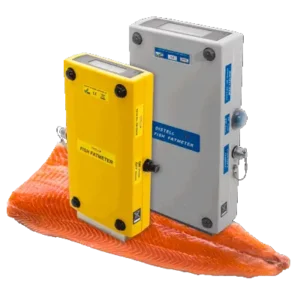
Fish Fat Meter
To Purchase: Call or Email


